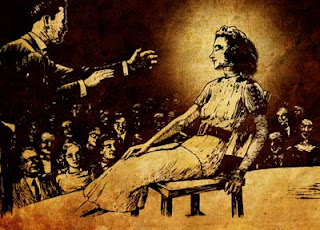-Ask the Expert-
Question:
Dear Doctors, i will really like to
have an explanation for something that i try to understand since a
long time. I have been abused (sexually and emotionally), by my
father and my family from youth to adolescence. I told my doctor and
my mother, but nobody did anything.
I will skip the details to do not make
this question become too long.
I got married, I lost three children
because of anatomical malfunctions of the womb.
Now i have a 5 years old kid,
Francesco.
I have been the eye-witness during a
trial against a pedophile. I went to college and study psychology to
try to understand, and to try to cure myself from the multiple
behavioral weirdness that characterize me. I am about to finish
college and i bless the day that I decided to apply.
My curiosity is this: how is it
possible to develop a sensibility and a behavior exactly opposite to
the one that was suffered? Basically, why am i so different from my
family?
I am doing a psychotherapy since 2
years, and i succeeded in becoming a bit more detached and
selfish...but it is still too little to make the idiots that surround
me respect me (read: my family).
Studying development psychology, i read
that only 15% of the abused subjects does not take the same deviated
career, but for the rest there is no hope.
The first time they told me this info,
I was 22 years old and I got so scared of being a pedophile, that I
was not able to take a bath for my kid.
Thanks to the psychotherapy, now things
are better, way better. But i would like to understand why that 15%
is sane regardless of the past, the context, and the negative and
destructive surrounding emotions.
Thank you.
Answer:
Dear Cynthia, i hope that your doubt,
that seems to be a little bit obsessive, will dissolve in time also
thanks to the help of psychotherapy. That is the best place to
communicate your thoughts, your fantasies, and your doubts.
What I can tell you is that you seem to
be a person that succeeded and is succeeding, regardless of the hard
experience of the past, in finding your personal path made of
victories, bravery, and confidence.
Probably you are naturally equipped
with a personality that contributed to make your resolute
temperament, and that the abusive experience did not break.
You chose to be a good and responsible
person, and you want to give what you did not receive in your life:
love, respect, trust. In your life you saw evil, but you chose
goodness.
I believe that you should let go of
your doubt, and believe that you are the good person that you seem to
be.
Best wishes
Answer:
Maddalena Bazzoli, Psychotherapist
Question:
Cynthia, 32 years old
Publication Date: 01/24/2008
Check out the original article here



















